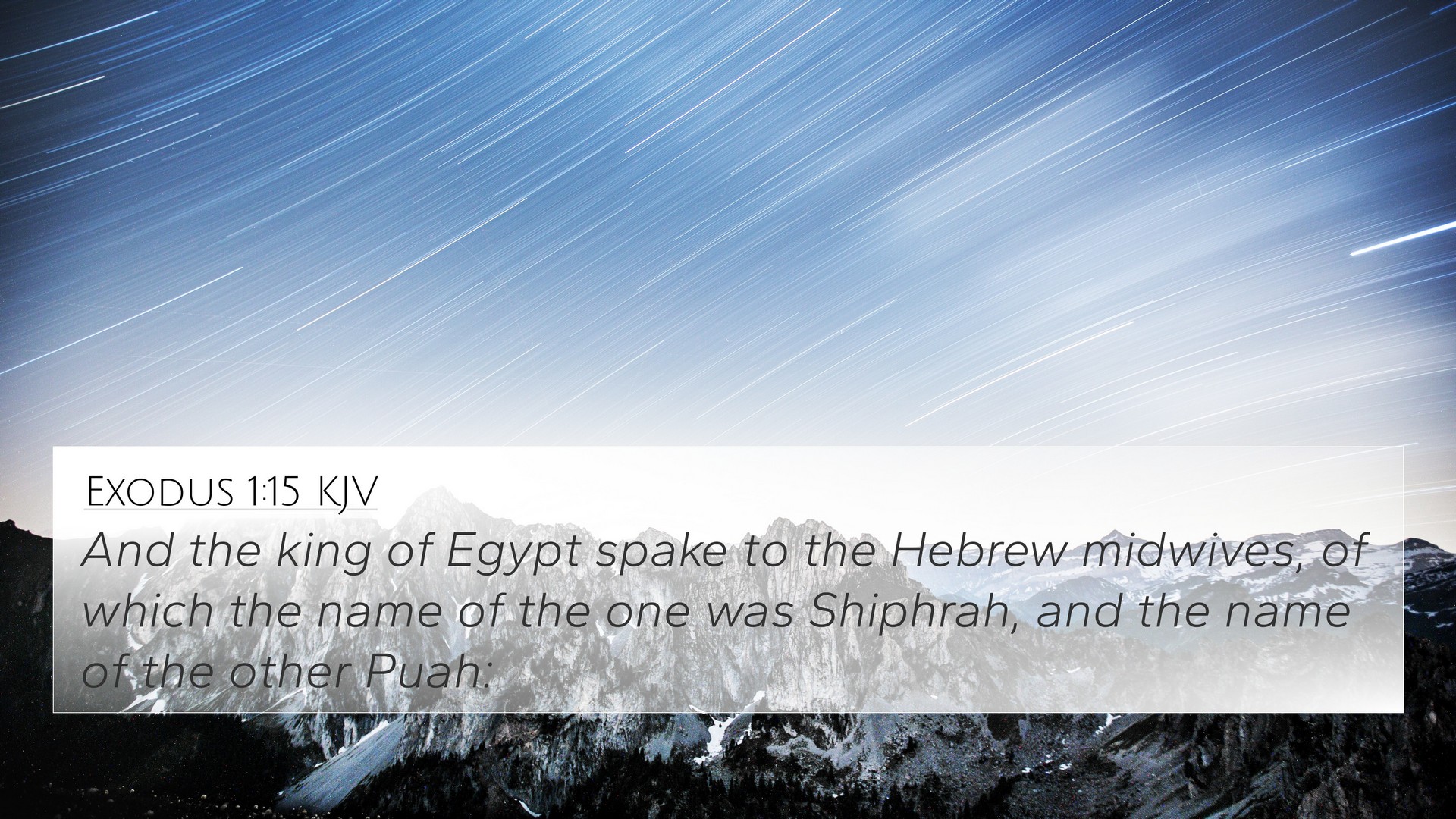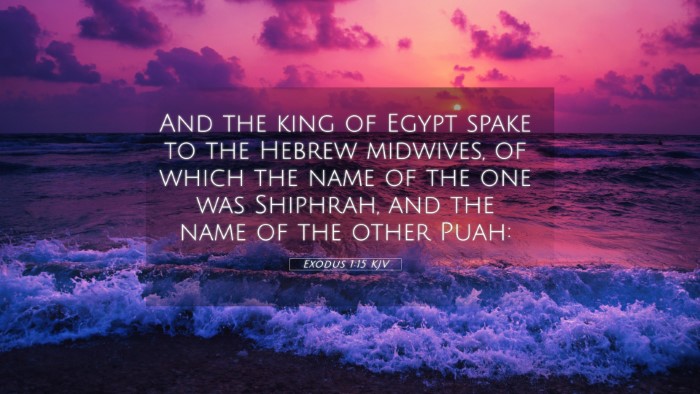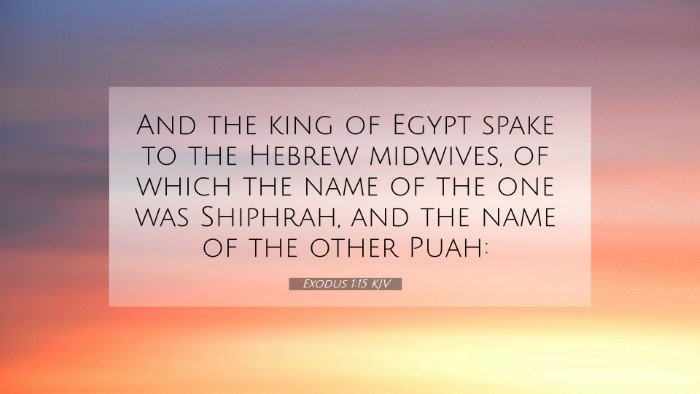Understanding Exodus 1:15
Exodus 1:15 states: "And the King of Egypt spake to the Hebrew midwives, of which the name of the one was Shiphrah, and the name of the other Puah." This verse introduces key figures in the narrative of the oppression of the Israelites in Egypt, setting the stage for God's intervention.
Commentary Insights
The commentaries from Matthew Henry, Albert Barnes, and Adam Clarke provide a rich understanding of this passage:
-
Matthew Henry:
Henry emphasizes the cruel intentions of Pharaoh, who sought to control the growth of the Israelite population through fear and intimidation. He highlights the significance of the midwives' roles, noting their moral courage in defying the king's orders.
-
Albert Barnes:
Barnes dives into the identities of the midwives, suggesting that their names symbolize their roles in the narrative. He reflects on the power dynamics at play, pointing out that Pharaoh sought to use these women as tools for his oppressive regime yet found them to be subversive.
-
Adam Clarke:
Clarke discusses the historical context, noting that the midwives were likely Egyptian but took on the duty to help the Hebrew women. He sees their actions as an early indication of resistance against tyranny and a foreshadowing of God's deliverance.
Thematic Connections and Cross-References
This verse serves as a crucial link in the broader narrative of the Exodus. The themes of oppression, resistance, and divine intervention resonate throughout the scriptures. Below are key Bible cross-references related to Exodus 1:15:
- Exodus 1:16: Continued orders by Pharaoh to the midwives.
- Exodus 1:17-20: The courage of the midwives leads to God's favor upon them.
- Hebrews 11:23: Reference to the faith of Moses' parents, highlighting the spirit of resistance.
- Matthew 2:16: Comparing the massacre of children under King Herod with Pharaoh's decree.
- Acts 7:19: Stephen speaks of Pharaoh oppressing the Israelites.
- James 5:4: Highlighting oppression and God's call for justice in labor exploitation.
- Revelation 12:4: Symbolic relation to the dragon seeking to consume the child, paralleling Pharaoh's decree.
Inter-Biblical Dialogue and Connections
The connections established through cross-referencing these Biblical texts highlight the continuity of God’s deliverance narrative and the recurring themes of faith and resistance against oppression. Not only do these verses connect the experiences of the Israelites, but they also echo into the New Testament, presenting parallels in the life of Jesus and the early Church.
Additional inquiry into cross-references can provide further insights into understanding the complexity of this Biblical narrative. Tools for Bible cross-referencing and resources like a Bible concordance can assist in exploring thematic Bible verse connections more deeply.
Conclusion
Exodus 1:15 serves as more than just a historical account; it is a foundation for understanding the struggle between oppressor and oppressed, a theme that resonates throughout the entirety of scripture. By examining the connections between Bible verses and utilizing cross-reference resources, the faithful can grasp the profound truths embedded within these ancient texts.


